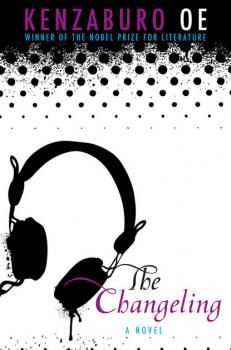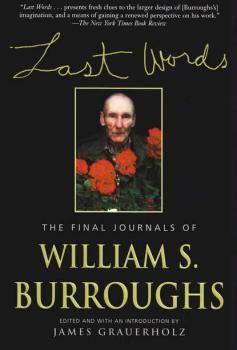Современная зарубежная литература
Различные книги в жанре Современная зарубежная литератураThe Changeling
Oe introduces Kogito Choko, a writer in his early sixties, as he rekindles a childhood friendship with his estranged brother-in-law, the renowned filmmaker Goro Hanawa. Goro sends Kogito a trunk of tapes he has recorded of reflections about their friendship, but as Kogito is listening one night, he hears something odd. «I'm going to head over to the Other Side now,» Goro says, and then Kogito hears a loud thud. After a moment of silence, Goro's voice continues: «But don't worry, I'm not going to stop communicating with you.» Moments later, Kogito's wife rushes in; Goro has jumped to his death. With that, Kogito begins a far-ranging search to understand what drove his brother-in-law to suicide. His quest takes him from the forests of southern Japan to the washed-out streets of Berlin, where Kogito confronts the ghosts from his own past and that of his lifelong, but departed, friend.
Last Words
Last Words: The Final Journals of William S. Burroughs is the most intimate book ever written by William S. Burroughs, author of Naked Lunch and one of the most celebrated literary outlaws of our time. Laid out as diary entries of the last nine months of Burroughs's life, Last Words spans the realms of cultural criticism, personal memoir, and fiction. Classic Burroughs concerns – literature, U.S. drug policy, the state of humanity, his love for his cats – permeate the book. Most significantly, Last Words contains some of the most personal work Burroughs has ever written, a final reckoning with his life and regrets, and his reflections on the deaths of his friends Allen Ginsberg and Timothy Leary. It is a poignant portrait of the man, his life, and his creative process – one that never quit, not even in the shadow of death.
Jasmine
When Jasmine is suddenly widowed at seventeen, she seems fated to a life of quiet isolation in the small Indian village where she was born. But the force of Jasmine's desires propels her explosively into a larger, more dangerous, and ultimately more life-giving world. In just a few years, Jasmine becomes Jane Ripplemeyer, happily pregnant by a middle-aged Iowa banker and the adoptive mother of a Vietnamese refugee. Jasmine's metamorphosis, with its shocking upheavals and its slow evolutionary steps, illuminates the making of an American mind; but even more powerfully, her story depicts the shifting contours of an America being transformed by her and others like her – our new neighbors, friends, and lovers. In Jasmine, Bharati Mukherjee has created a heroine as exotic and unexpected as the many worlds in which she lives. «Rich…one of the most suggestive novels we have about what it is to become an American.» – The New York Times Book Review
Charity
Winner of the Chapters/Books in Canada First Novel Award and the Ethel Wilson Prize, Fraser has been called “one of the most gifted of the new generation of fiction writers” by The Oxford Companion to Canadian Literature . Fraser is a full-time writer and volunteers as Chair of Canada India Village Aid (CIVA). Selected by fiction editor John Metcalf, Charity is the first title in our new novella series.
Freshwater
A National Book Foundation “5 Under 35” Honoree Finalist for the PEN/Hemingway Award for a Debut Novel Shortlisted for the Center for Fiction First Novel Prize A New York Times Notable Book One of the most highly praised novels of the year, the debut from an astonishing young writer, Freshwater tells the story of Ada, an unusual child who is a source of deep concern to her southern Nigerian family. Young Ada is troubled, prone to violent fits. Born “with one foot on the other side,” she begins to develop separate selves within her as she grows into adulthood. And when she travels to America for college, a traumatic event on campus crystallizes the selves into something powerful and potentially dangerous, making Ada fade into the background of her own mind as these alters—now protective, now hedonistic—move into control. Written with stylistic brilliance and based in the author’s realities, Freshwater dazzles with ferocious energy and serpentine grace.
September Remember
An alcoholic on awakening is much like a newborn baby—fragile and without any defense against a very sober world. September Remember begins with a terrifying—and darkly funny blackout—the sort of a blackout that pulls you right into the mind of a drunk on the loose. Reading it, I was reminded of my AA friend picking me up in his truck, the uncertainty of that boozy hazy evening. The blackout is not the story of September Remember, but it’s that darkness that will suck you into this story.When published, September Remember was a best seller, and the first known novel that put AA into literary consciousness. It’s been out of print now for over 60 years.The book is full of language and prejudices that are reflective of its time. That was the time of America between the two world wars: more than twenty years before Martin Luther King’s “I Have a Dream” speech, years before women made it out of the kitchen into the living room, and years before new immigrants were only recognizable by the derogatory terms used to describe them. In that way, September Remember can be treated as a historical document that mentions Alcoholics Anonymous, but it is much more than that: its mythology is essentially AA’s, a story of rebirth and redemption.
The Paris Herald
Any American traveling in the world today will come across the Paris Herald somewhere, though it now goes under the name the International New York Times. Never mind, at heart it is still the Paris Herald and traces its roots to Paris at the beginning of the 20th Century when it was as familiar in the kiosks of the Left Bank and the Champs Elysées as the latest article in l’Aurore by Zola or newest installment by Proust in his never ending search for lost time.The Paris Herald, narrative historical fiction, tells the story of the world’s most famous newspaper, focusing on the key years of the 1960s, when the fates of the newspaper and of the regime of Charles de Gaulle became curiously intertwined.The story centers on intrigue and rivalry among the New York Herald Tribune, New York Times and Washington Post. When the Herald Tribune ceased operations in New York in 1966, the Times, which had started its own European Edition in 1960, expected the Paris Herald to close, too, giving the Times victory in Paris as well as New York. But Herald Tribuneowner Jock Whitney wouldn’t sell to the Times, preferring to join with Katharine Graham, who’d taken charge at the Post after her husband’s death.Within months, the Times came, hat-in-hand, offering to close its European edition and asking to buy into the new Herald/Post partnership. The Times neither forgave nor forgot its humiliation.The Paris Herald is the story of many people: of Frank Draper, who fought in the Lincoln Brigade; Byron Hallsberg, who joined the Hungarian uprising; Dennis Klein, researching the Nazi occupation of Paris; Suzy de Granville, searching for family roots; Wayne Murray, escaping homophobia; of Steve and Molly Fleming, living the high life; Sonny Stein and Al Lodge and Connie Marshall and Ben Swart and Eddie Jones, paperboy, all finding themselves at the Paris Herald for their own reasons and ending up in the fight to keep the newspaper alive.The 1960s was a tumultuous decade. The conflict in America over race and the Vietnam War spread to Europe, setting off terrorism, riots and revolt across the continent and threatening already shaky regimes. Nowhere was the risk of collapse greater than in France, where the revolt of 1968 nearly toppled the government and led to the resignation of President Charles de Gaulle the following year. Throughout those difficult times, the Paris Herald was at the center of eventsSince being founded in 1887 by James Gordon Bennett, Jr., the Paris Herald has been essential to American expatriate life in Europe. In France, many Americans put down roots, married into French families and became permanent expatriates, in some cases exiles, like Bennett himself. The tense events of the 1960s touched the lives of every American in Paris, including many well-known artistic exiles: James Baldwin, Art Buchwald, William Saroyan, James Jones, Bud Powell, Dexter Gordon, Kenny Clarke, Joe Turner, Memphis Slim.As the crisis deepened, one shadowy man became the link between de Gaulle and the troika of newspaper owners, Whitney, Graham and Arthur Ochs Sulzberger. This man, Henri de Saint-Gaudens, a high French official in the Elysée Palace, understood the Herald’s historical importance to Paris.The Paris Herald, a novel, is riveting historical drama, as relevant today as yesterday. It is a story never before told.
The Five Little Bunnies
Once upon a time there were five little bunnies. Their names were: Bobby, Belinda, Barbara, Billy and Bobby. The bunnies lived in the countryside, their best friend (a dog named Buster) lived nearby. The bunnies and Buster go on lots of adventures – although sometimes they get into some trouble! Look inside and see what they get up to.
Enemy Combatant
ENEMY COMBATANT is a hyper-charged misadventure driven by a young American's rage against his government. After stumbling on evidence of CIA secret prisons in Armenia and Georgia, Peter recruits an old friend to help free a dark-ops detainee – an impossibly reckless prison-break mission, with no skills and no resources, no connection to the captured soldiers and no solid plan for getting home – fueled by too much alcohol, a pressure-cooker marriage and the recent death of a parent. Set during the second Bush administration, ENEMY COMBATANT takes readers on a fantastical, adrenaline-packed journey from a smelter in Caucasia across the Turkish borderland to Homeland Security at JFK. Dark, comic and action-packed, ENEMY COMBATANT is the story of an aggrieved man acting out on the global stage, a raucous portrait of collateral damage from America's war on terror. "ENEMY COMBATANT covers a lot of territory, factually and metaphorically. It appropriates Americana, from road movies to virtual reality games, and provides –as the cliché goes – 'a rollicking good time,' while undercutting that notion entirely, as selfish, unaware, and dangerously self-serving. Sound like any country you've ever heard of? So, as I read it, this novel gathers its tropes and its metaphors as it speeds toward a kind of enlightenment for its two hazardously American male characters. It's obviously a cautionary tale and a cosmic warning. To make a bad pun: It's a take no prisoners book." – Ann Beattie, author of A Wonderful Stroke of Luck: A Novel "With his unsettling and completely original style, Winner brings together the buddy film, the war on terror and extravagant foreign settings in this novel that feels like a soon to be discovered blockbuster. Over and over, sentence by sentence we're caught off guard, leaving us in state of eerie suspense the whole book through." – Elizabeth McKenzie, author of The Portable Veblen: A Novel "David Winner's hypnotic page-turner, ENEMY COMBATANT, takes us back to the Bush era, during the Trump one. Winner's humor and agile imagination make the improbable story of two crazed Americans trying to rescue a prisoner from a CIA secret prison in Armenia both moving and believable." – Karl Geary, author of Montpelier Parade









